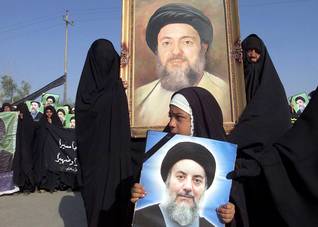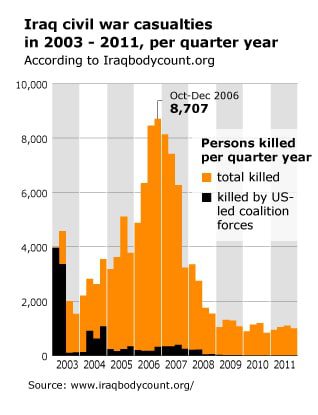

As the insurgency and the counter-insurgency tactics of the US-British occupying forces began to take shape, the situation deteriorated quickly. The main targets of armed Iraqi groups were the Stabilization Force Iraq (SFIR) occupying forces and Iraqi representatives of the new order or people affiliated with them: from politicians, soldiers, and policemen to religious leaders (e.g., the assassination of Ayatollah Sayyid Mohammad Baqir al-Hakim on 29 August 2003) and foreign representatives (e.g., the bomb blast at the Canal Hotel that killed the UN Secretary-General’s Special Representative, the Brazilian diplomat Sérgio Vieira de Mello and twenty-one others on 19 August 2003).
Very worrying, too, were the bomb attacks by Salafist jihadis on Shiite civilian targets, which included mass gatherings of Shiite believers during religious festivals, where many people were killed.
The focus of the atrocities was Baghdad (six million inhabitants, including suburbs, i.e., a quarter of the population of Iraq), but other mixed areas suffered their share of the bloodshed as well.
The attacks focused also on infrastructure, foreign workers, and relief agencies, and had the intended effect of obstructing economic recovery.
As a result, many Iraqis continued to go without basic services, such as clean drinking water and electricity and became or remained unemployed. The worst was still to come.
Even with all their military might, the US-British occupying forces could do little about these developments. The revelations in May 2004 that US military guards in the infamous Abu Ghraib Prison were using torture and sexual abuse to break prisoners before interrogation also hurt their cause. Increasing unrest over all these matters broadened support for the opposition and the armed insurgency.

